Nile Crocodile
Common Name: Nile Crocodile
Scientific Name: Crocodylus niloticus
Names: Nyati & Kiboko, Induna & Nandi, Pearl & Tombi
Locations: Whitby, Vaughan & London
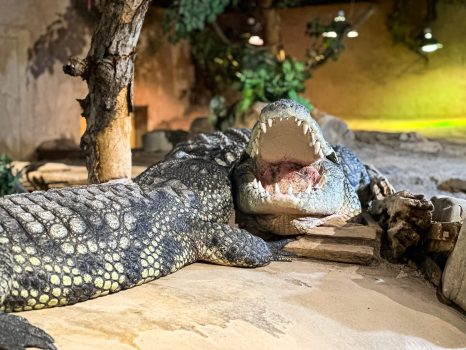
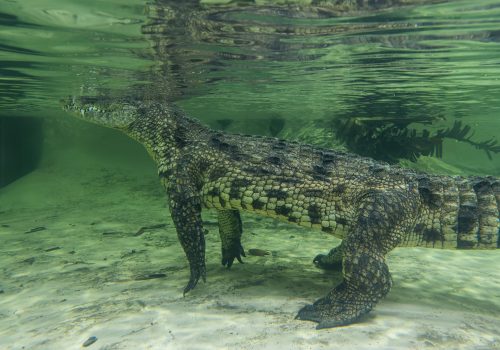
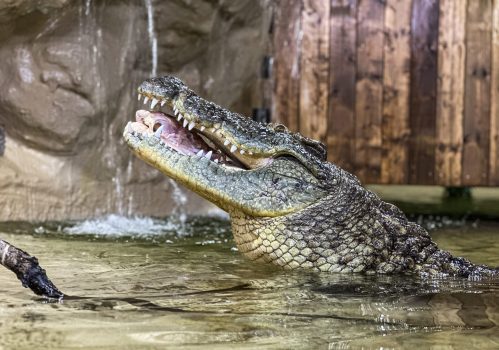
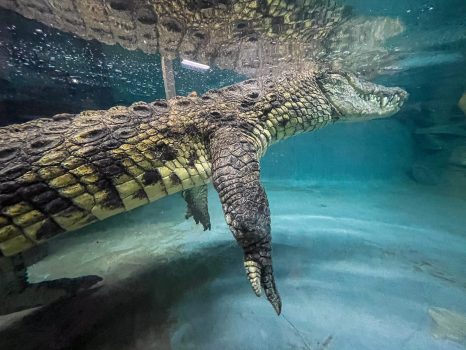
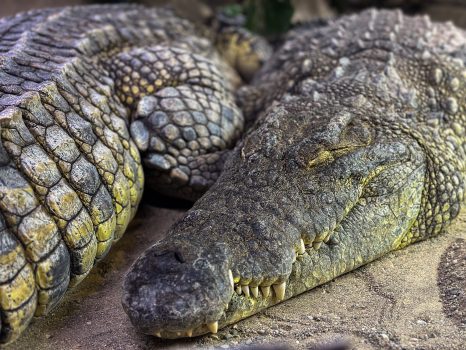
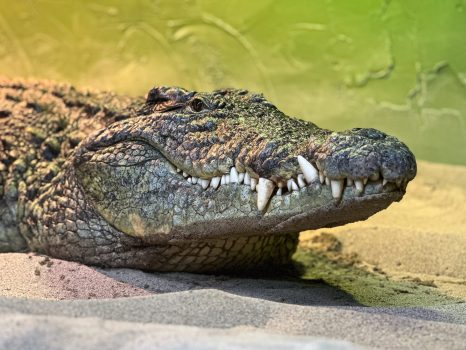
Diet
Nile crocodiles are apex predators and feed on a variety of prey, including fish, birds, mammals, and occasionally larger animals such as buffalo or even other crocodiles.
Average lifespan
Nile crocodiles can live up to 70-100 years in the wild.
Size
Adults typically range from 3.5 to 5 meters (11 to 16 feet) in length, although larger individuals exceeding 6 meters (20 feet) have been reported.
Weight
Adults can weigh between 225 to 750 kilograms (500 to 1,650 pounds), with males generally larger and heavier than females.
About
Nile crocodiles are iconic reptiles found in various freshwater habitats throughout sub-Saharan Africa, including rivers, lakes, marshes, and swamps. They are known for their powerful jaws, formidable hunting abilities, and prehistoric appearance.
Size and behavior
Nile crocodiles are primarily nocturnal hunters, using ambush tactics to catch their prey. They are agile both in water and on land, capable of surprising bursts of speed. Despite their large size, they are proficient swimmers and can move swiftly through the water. Nile crocodiles are also known for their territorial behavior and can be aggressive when defending their territory or young.
Diet and nutrition
Nile crocodiles have a diverse diet, feeding on fish, birds, mammals, and reptiles. Their diet can vary depending on factors such as habitat, prey availability, and size. Nile crocodiles have a powerful bite force and sharp teeth that allow them to consume large prey, which they swallow whole or tear into smaller pieces.
Conservation status
While once abundant throughout their range, Nile crocodile populations have declined due to habitat loss, hunting, and human-wildlife conflict. They are currently listed as “Least Concern” by the International Union for Conservation of Nature (IUCN), although localized declines and threats still exist. Conservation efforts, including habitat protection and regulated hunting, are important for ensuring the long-term survival of Nile crocodile populations.
Fun fact
Nile crocodiles have been observed engaging in cooperative hunting behavior, where multiple individuals work together to capture larger prey. This behavior demonstrates their complex social dynamics and intelligence.
Call or visit your local Reptilia Facility to learn how you can adopt one of these amazing reptiles.










